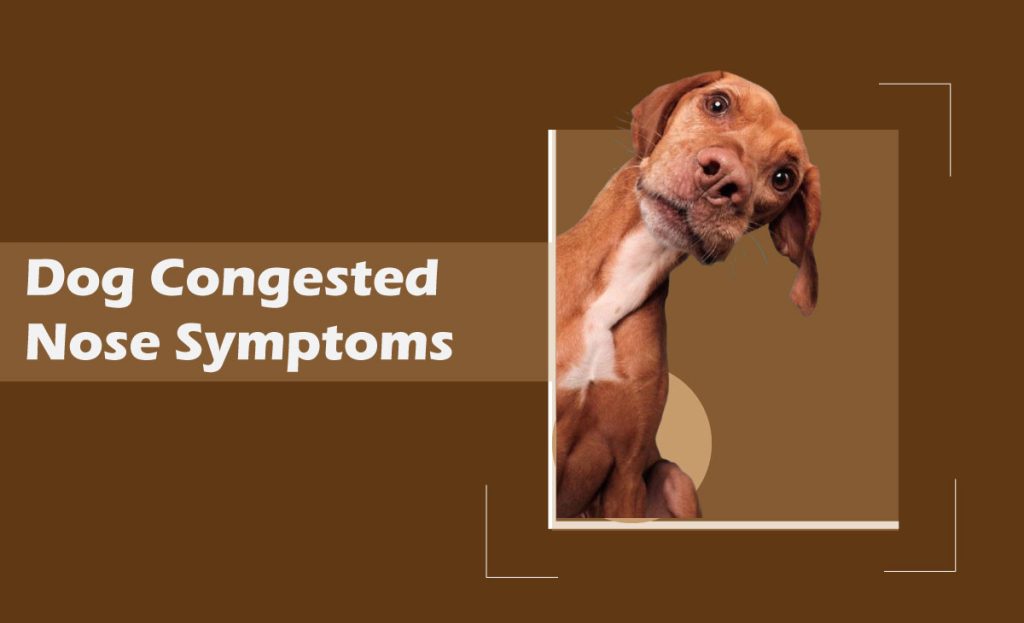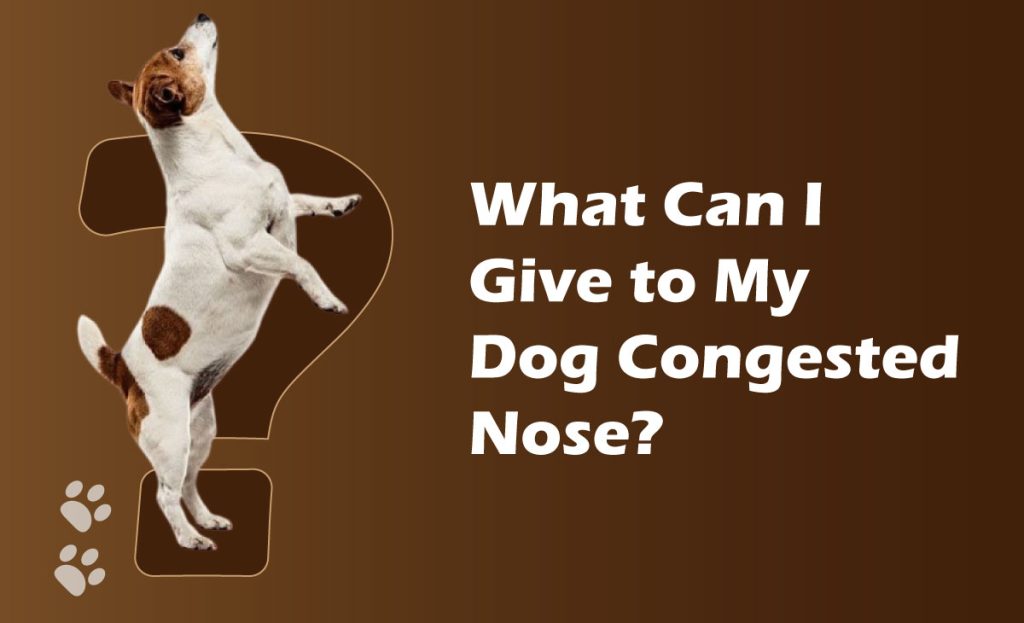A dog congested nose can be worrisome for any dog lover. Just like humans, dogs can experience nasal congestion due to various reasons, including allergies, infections, or even environmental factors.
While occasional sniffles might not be cause for alarm, persistent nasal congestion can affect your dog’s quality of life and may indicate an underlying health issue.
In this blog, we will discuss the causes, symptoms, and treatments for a dog’s congested nose, answering common questions and providing practical home remedies.
What Causes Dog Congested Nose?
Nasal congestion in dogs can stem from several factors:
- Allergies: Dogs, like humans, can suffer from allergies to pollen, dust, mold, or even certain foods. These allergies can cause inflammation in the nasal passages, leading to a congested nose.
- Infections: Bacterial, viral, or fungal infections, such as kennel cough or canine influenza, can lead to a runny or stuffy nose in dogs. Infections often come with additional symptoms like coughing, sneezing, and lethargy.
- Foreign Objects: Sometimes, dogs can inhale small objects, such as grass seeds or dirt, which can become lodged in their nasal passages and cause congestion.
- Environmental Factors: Cold weather, dry air, or exposure to strong odors and chemicals can irritate a dog’s nasal passages, leading to congestion.
- Nasal Tumors or Polyps: Though less common, tumors or polyps in the nasal passages can cause chronic nasal congestion and require veterinary intervention.
Dog Congested Nose Symptoms

Recognizing the signs of a blocked nose in dogs is essential for early treatment. Common symptoms include:
- Sniffling or sneezing: Frequent sneezing or sniffling can indicate nasal congestion.
- Labored breathing: If your dog is struggling to breathe through its nose, you may notice mouth breathing or a pronounced snoring sound.
- Nasal discharge: A runny nose with clear, yellow, or green discharge may accompany congestion.
- Loss of appetite: Dogs with a blocked nose may lose interest in food due to the inability to smell properly.
- Lethargy: A dog with nasal congestion may seem more tired or less active than usual.
Is It Normal for Your Pet to Sound Like Dog Congested Nose?
Occasional congestion or sniffling can be normal, especially during allergy season or after exposure to irritants.
However, if your favorite chunky dog sounds congested for an extended period or if you notice other symptoms like coughing, difficulty breathing, or nasal discharge, it’s important to seek veterinary advice. Prolonged or severe congestion can indicate an underlying issue that needs treatment.
How to Help a Dog Congested Nose?
If your dog has a snotty nose, there are several things you can do to help alleviate the symptoms:
- Keep the air moist: Using a humidifier in the room where your dog sleeps can help keep nasal passages moist and reduce congestion.
- Wipe the nose: Gently wipe your dog’s nose with a warm, damp cloth to remove any discharge and keep the nasal passages clear.
- Provide hydration: Make sure your dog has plenty of water to drink. Staying hydrated can help thin mucus and make it easier to clear the nasal passages.
- Elevate the bed: Elevating your dog’s head while they sleep can help reduce congestion, making it easier for them to breathe.
Dog Congested Nose Treatment at Home
If your big white dog has a congested nose, several home remedies can provide relief:
- Saline nasal drops: Ask your vet about using saline nasal drops for your dog.
- Essential oils: While not all essential oils are safe for dogs, some, like eucalyptus, can help with respiratory issues. Consult your vet before using any essential oils near your dog.
What Can I Give to My Dog Congested Nose?

Over-the-counter human decongestants can be harmful to dogs, so never give these without veterinary approval. Your vet may prescribe specific medications, such as antihistamines for allergies or antibiotics for bacterial infections, to treat your dog’s nasal congestion.
Also read: The Undeniable Symptoms Of Giardia In Dogs
When to See a Vet for Dog Congested Nose
While many cases of nasal congestion in dogs can be managed at home, there are times when veterinary care is necessary. If your dog’s congestion is accompanied by severe symptoms like high fever, extreme lethargy, loss of appetite, or difficulty breathing, it’s crucial to seek immediate veterinary attention.
Chronic congestion lasting more than a few days also warrants a vet visit to rule out more serious conditions like infections or tumors.
Final Words
A dog congested nose can be uncomfortable for your furry friend, but with the right care and attention, you can help alleviate their symptoms.
Whether it’s through home remedies like steam therapy and hydration or more advanced treatments prescribed by a vet, understanding how to treat and manage your big dog’s congestion is key to ensuring their comfort and health.




